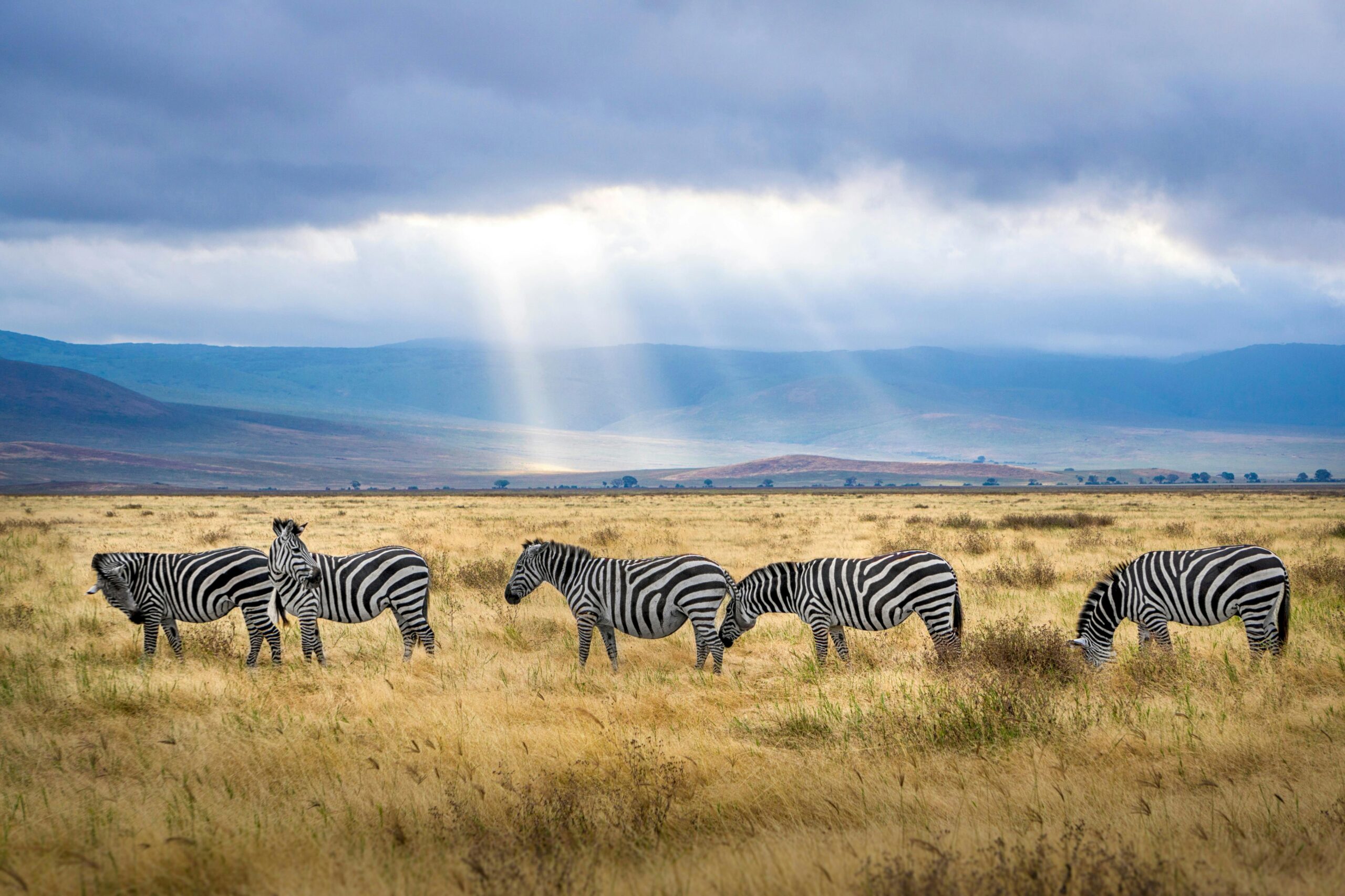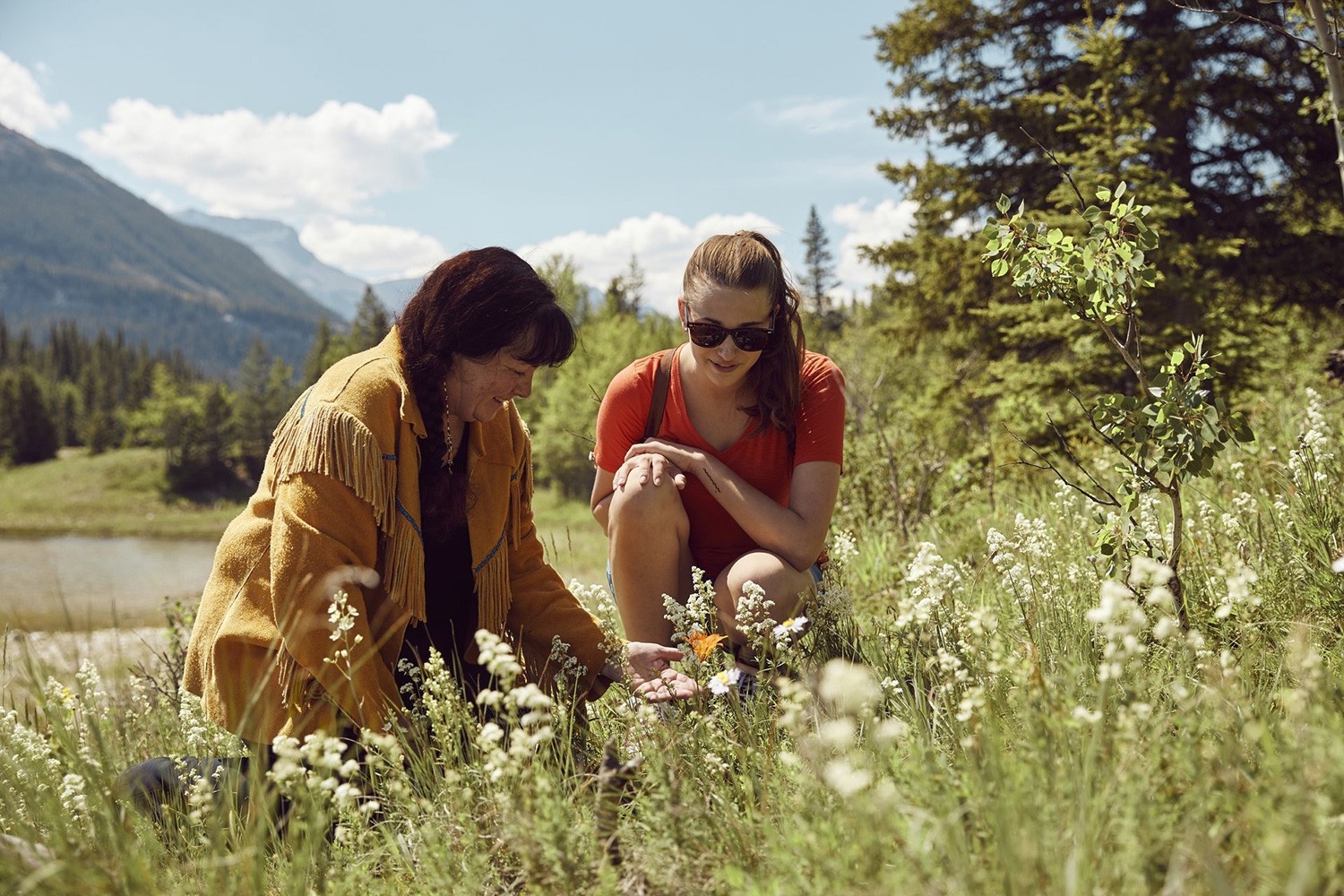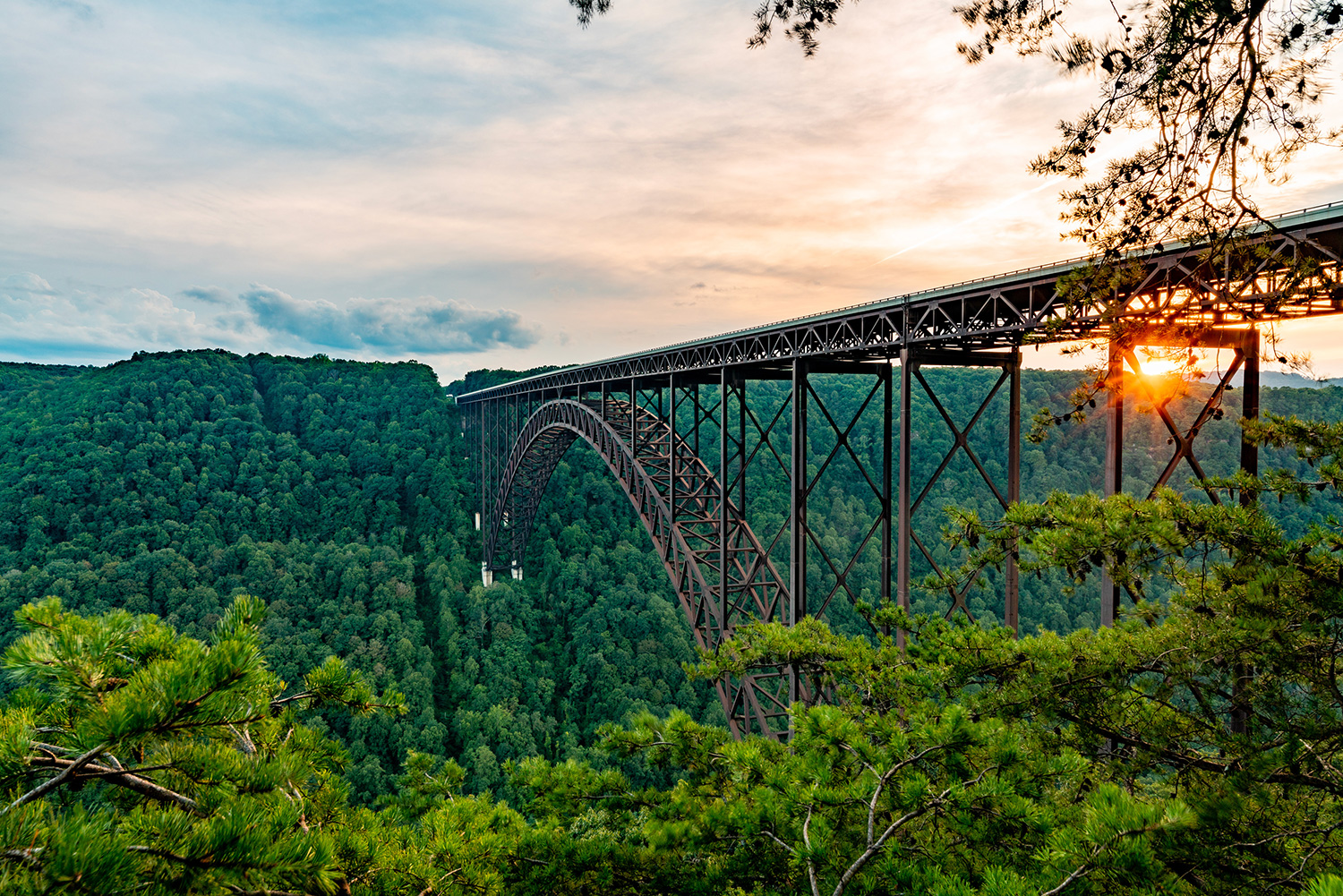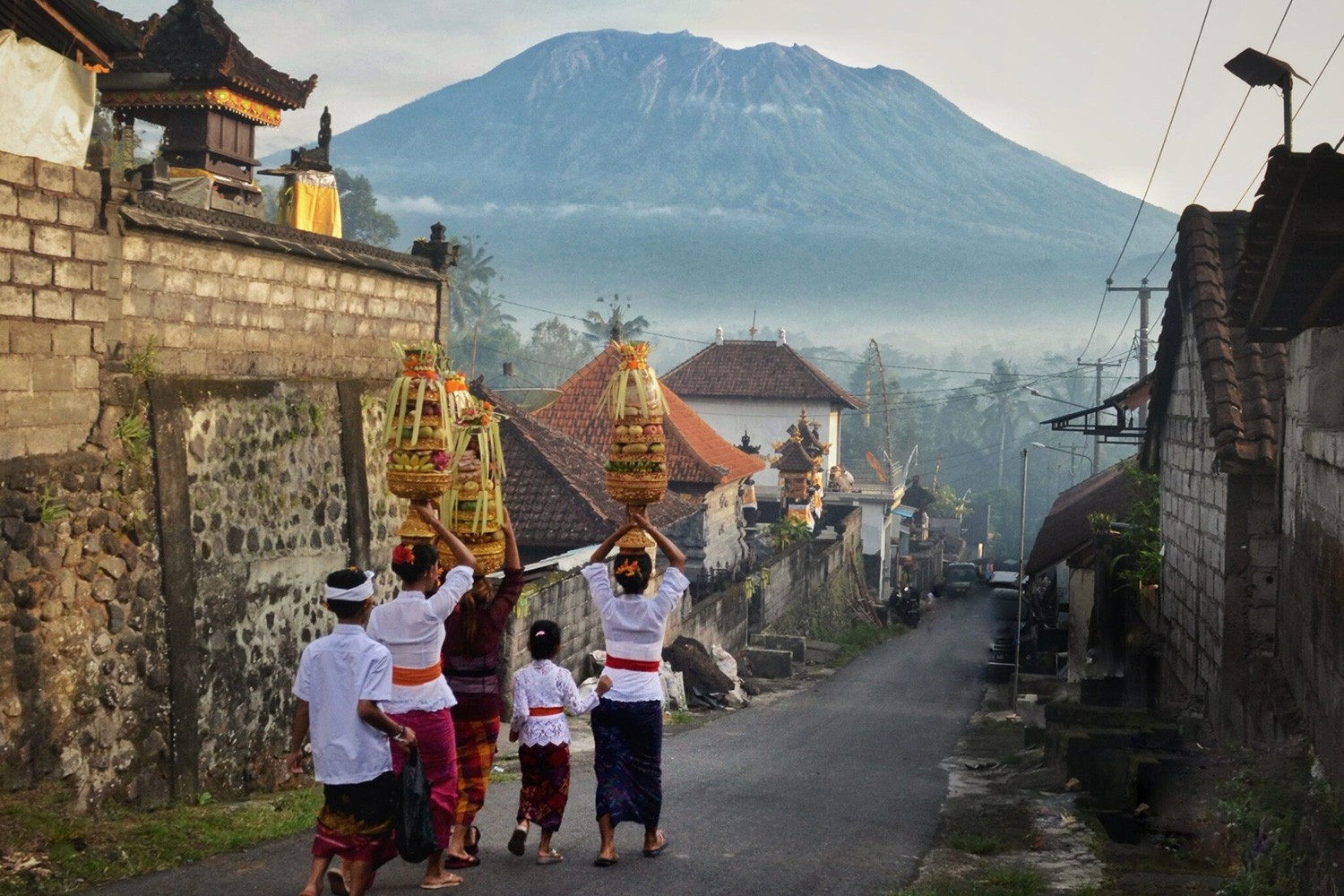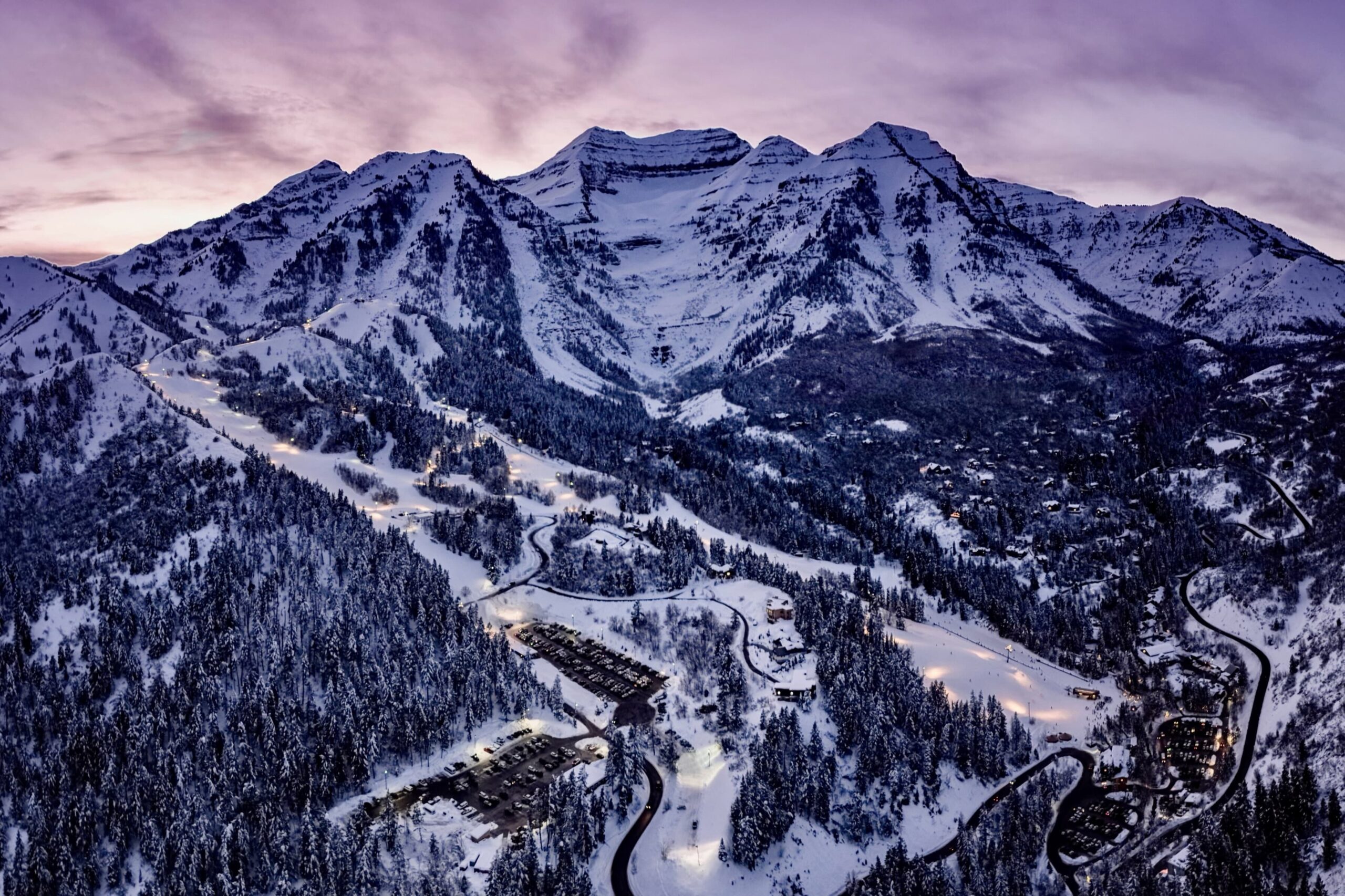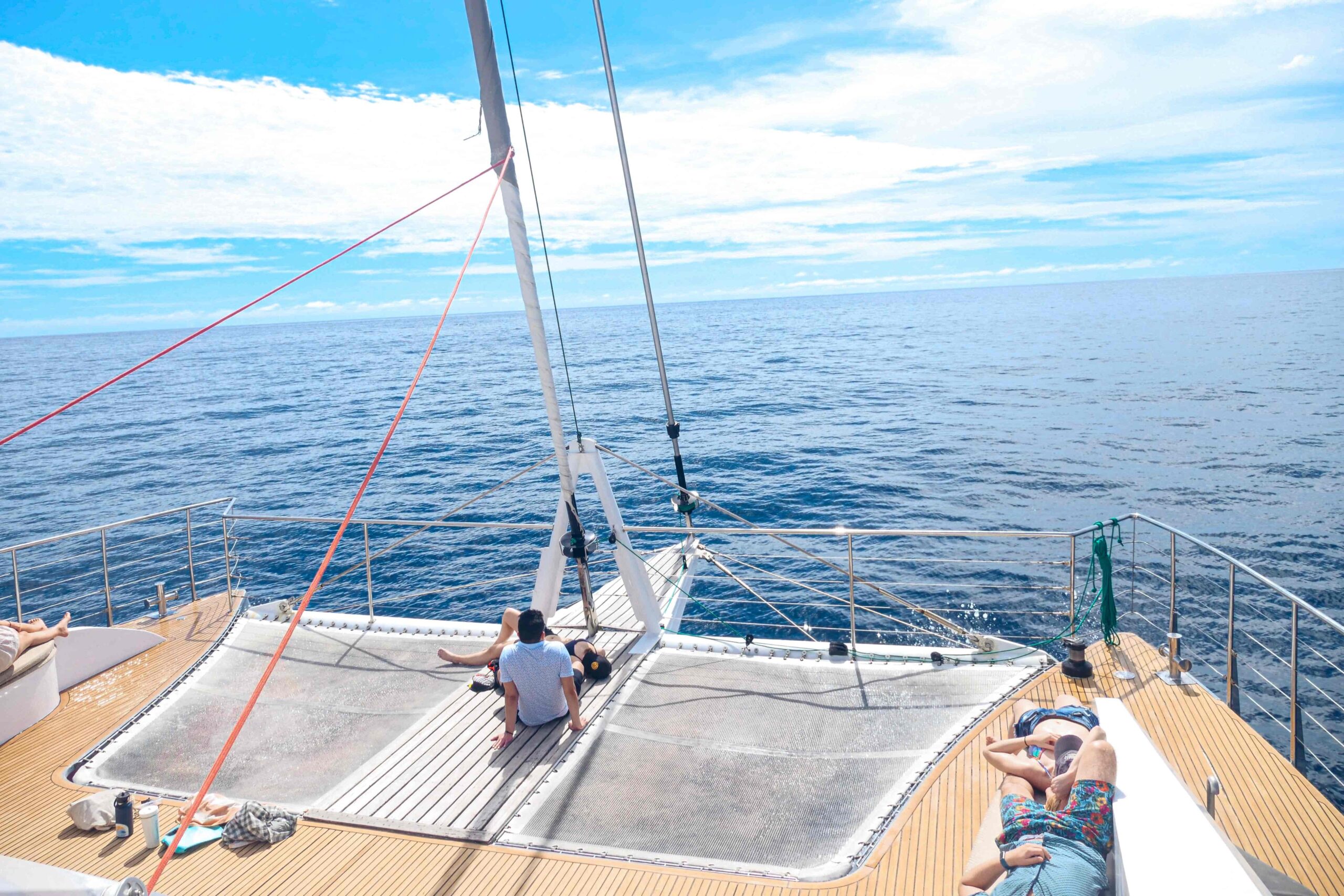“Any company worth its salt will be showcasing the ways in which they demonstrate a sustainable ethos.“
Amid concerns of overtourism in the Serengeti, mindful travelers may wonder whether it’s still a good idea to plan a safari in Tanzania’s most beloved national park. While it’s impossible to travel without leaving a footprint, choosing safari companies with a commitment to doing right by the environment and local communities alike goes a long way in making sure each footprint is a step in the right direction.
“Look for companies that actively demonstrate a sustainable ethos,” says Ben Morison, founder of Far and Wild. “Any company worth its salt will be showcasing the ways in which they do this – in their social media, website, and their direct communication with you. B Corp and similar certifications are excellent indicators; you can also look for mentions of carbon scoring and mitigation options.”
The Serengeti is popular for (many) good reasons, and it is certainly possible to experience this incredible safari destination responsibly. With our conscientious North Star principles in mind, Azure Road has selected five tour operators that you can feel confident about booking. And in case you prefer to plan your own safari experience, we’re highlighting five standout lodges, too.
Serengeti Tour Operators
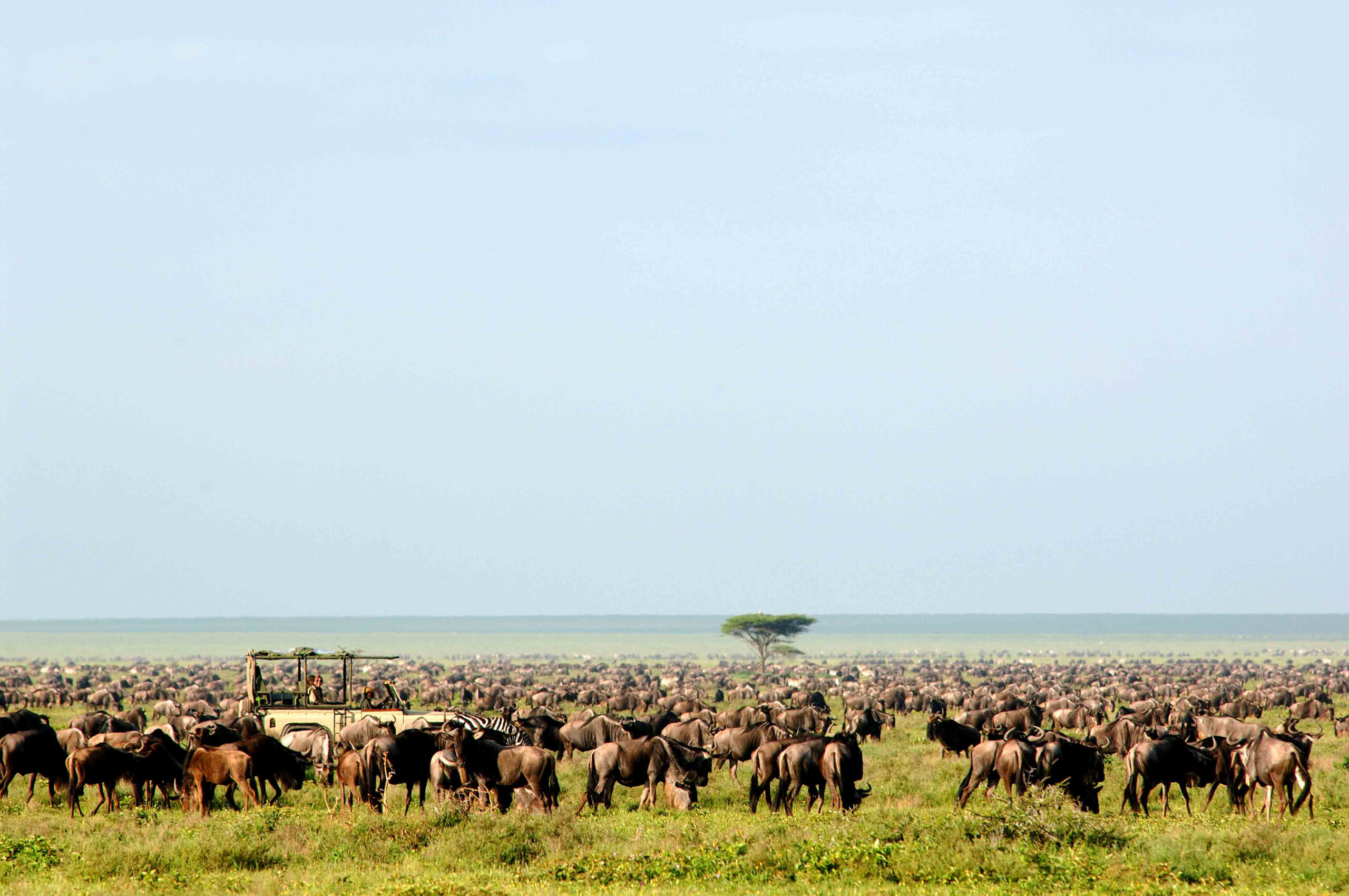
Image courtesy of Journeysmiths.
North Stars: Community Support, Wildlife & Ecosystems, Heritage Value
Inspired by Africa’s natural beauty, Journeysmiths’ founders began creating bespoke itineraries with the aim of showcasing the continent’s wild places alongside local experts. More than three decades later, Journeysmiths has expanded operations into Latin America and Asia, but its roots are solidly in Africa. WIth Tanzania as a keystone destination, this tour operator only partners with accommodations and service providers who prioritize community enrichment and projects addressing location-specific needs – it’s a network that is continuously in development by Journeysmiths’ own Head of Sustainability, Rory Wood. The company strives to ensure that clients always understand the full scope of positive impacts of their travel plans, and provides suggestions for how to go deeper with their safari experiences.
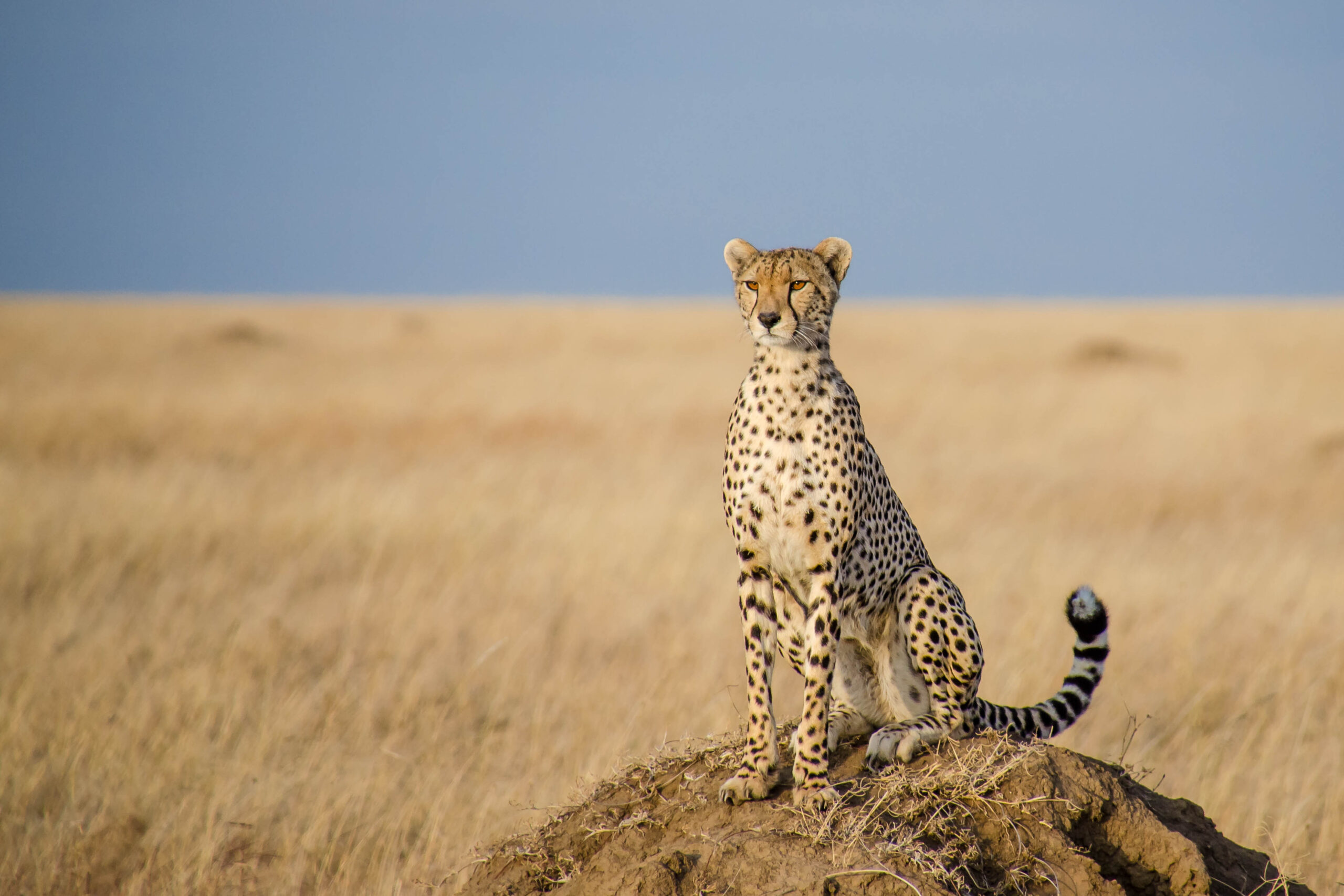
Courtesy of Audley Travel.
North Stars: Community Support, Wildlife & Ecosystems, Certifications
As a Certified B Corporation, Audley Travel adheres to the highest standards of social and environmental accountability. All trips – including those to the Seregenti and surrounding areas – are tailor-made by the company’s in-house destination specialists. Accommodations are chosen for their commitment to minimizing environmental impact and making a positive difference in local communities. Audley Travel regularly books Asilia Africa’s Dunia Camp (listed below) for their guests, and it’s a great example of these core principles as the camp is operated entirely by women – the only one of its kind in the Serengeti.
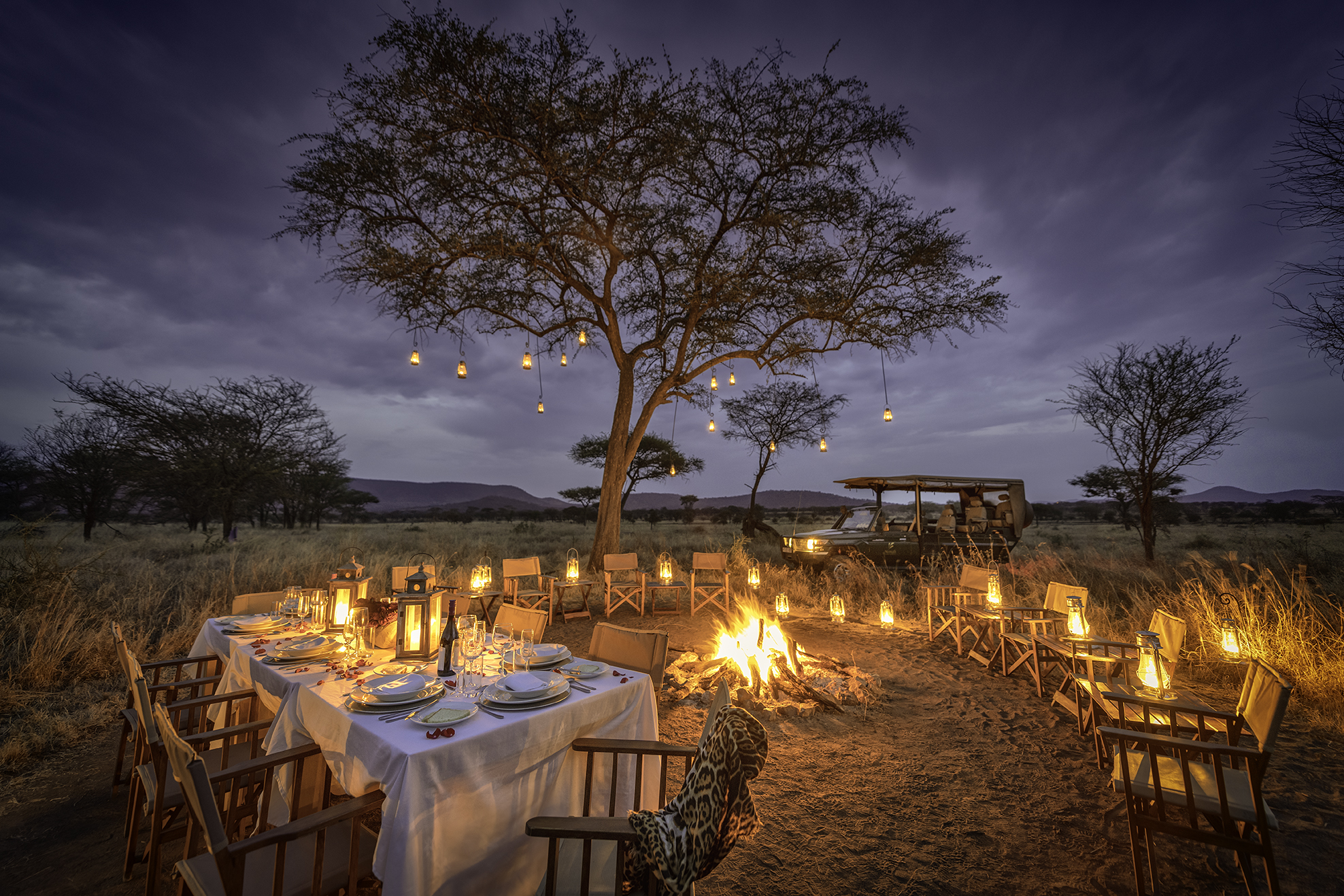
Courtesy of Far and Wild
North Stars: Energy Efficiency, Waste Management, Carbon Footprint
Sustainability is the core ethos at Far and Wild. Not only is the company a founding member of Tourism Declares Climate Emergency, Morison also began the Flipflopi Project, which aims to end single-use plastics in East Africa. When it comes to planning safaris for guests, Far and Wild’s custom itineraries are designed to put people and meaningful experiences first – and each includes a personalized carbon quote. Dissatisfied with existing carbon calculators, Far and Wild created their own carbon scoring system called CARBONSCORED, and guests are encouraged to offset the carbon footprint of their trips through Ecologi.
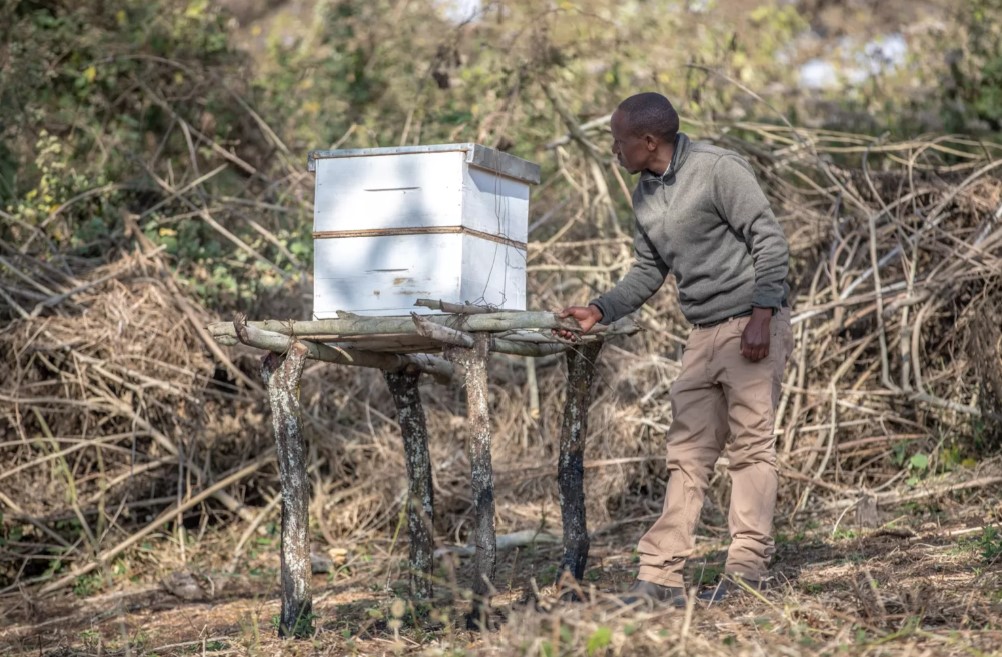
Courtesy of Nomad Tanzania.
North Stars: Community Support, Wildlife & Ecosystems, Heritage Value
Arusha-based Nomad Tanzania operates from the gateway to the Serengeti. The company’s focus is on improving lives – for Tanzanian communities and visiting guests alike. Nomad Tanzania supports local entrepreneurship through training, education, and investment – even an in-camp honey project – as well as providing medical outreach and supporting environmental projects. Alternative safari experiences are on offer here, too, including fly camping and walking along the rim of the Ngorongoro Crater to the edge of the Southern Serengeti.
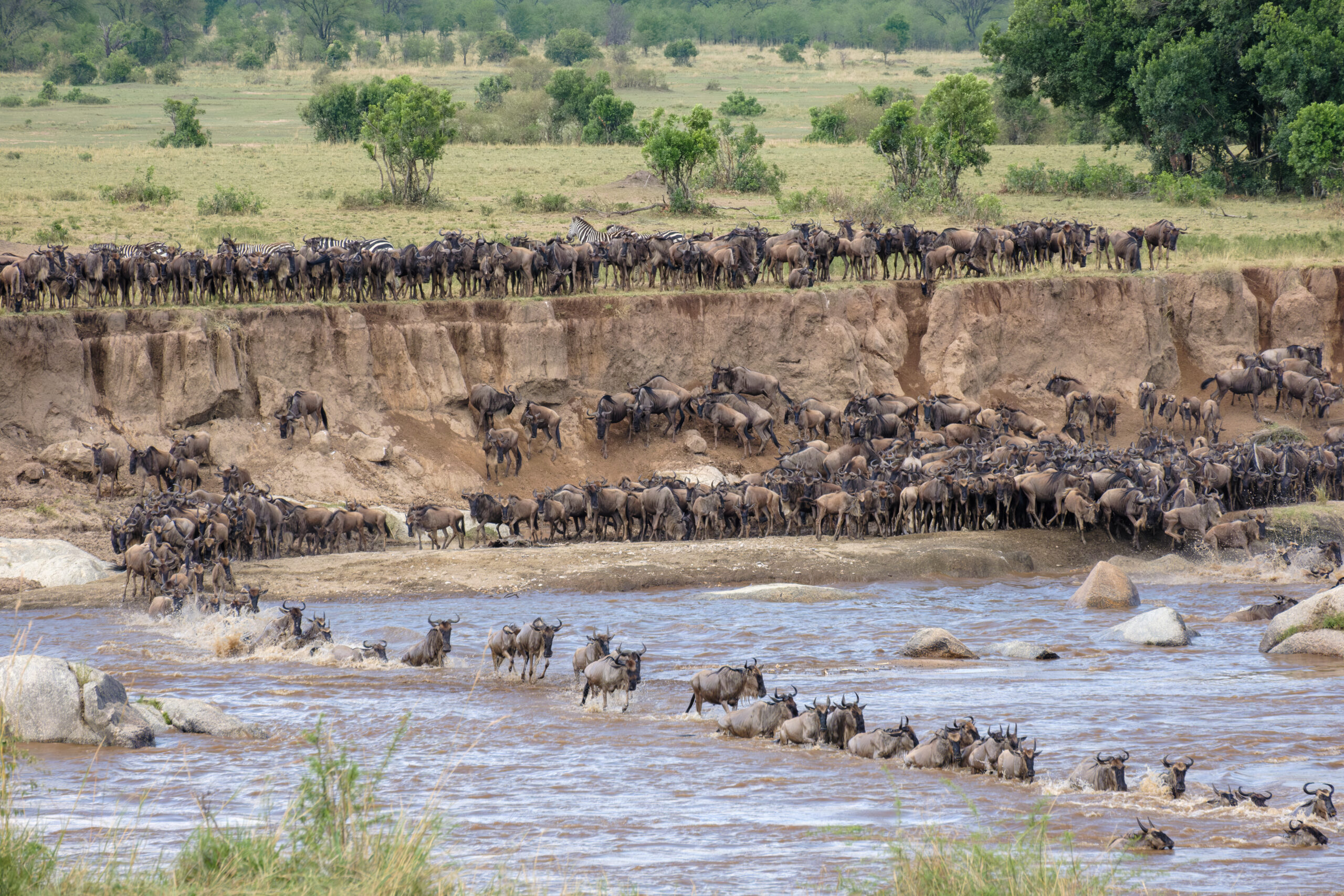
The great migration. Image courtesy of Summer Rylander.
North Stars: Community Support, Wildlife & Ecosystems, Heritage Value
Operating in East Africa for over three decades, Gamewatchers Safaris has won numerous awards for its commitment to eco-minded safari tourism – most recently earning the 2024 ATTA for Action Award in the Collaborative Champions of Climate and Social Justice category. Gamewatchers partners with small camps and lodges (like Nimali, noted below) to ensure tourism dollars stay within the region, and the company works closely with Indigenous communities living near national parks and reserves. These efforts provide financial support and educational opportunities, which in turn benefit wildlife conservation and guest enrichment.
Serengeti Lodges
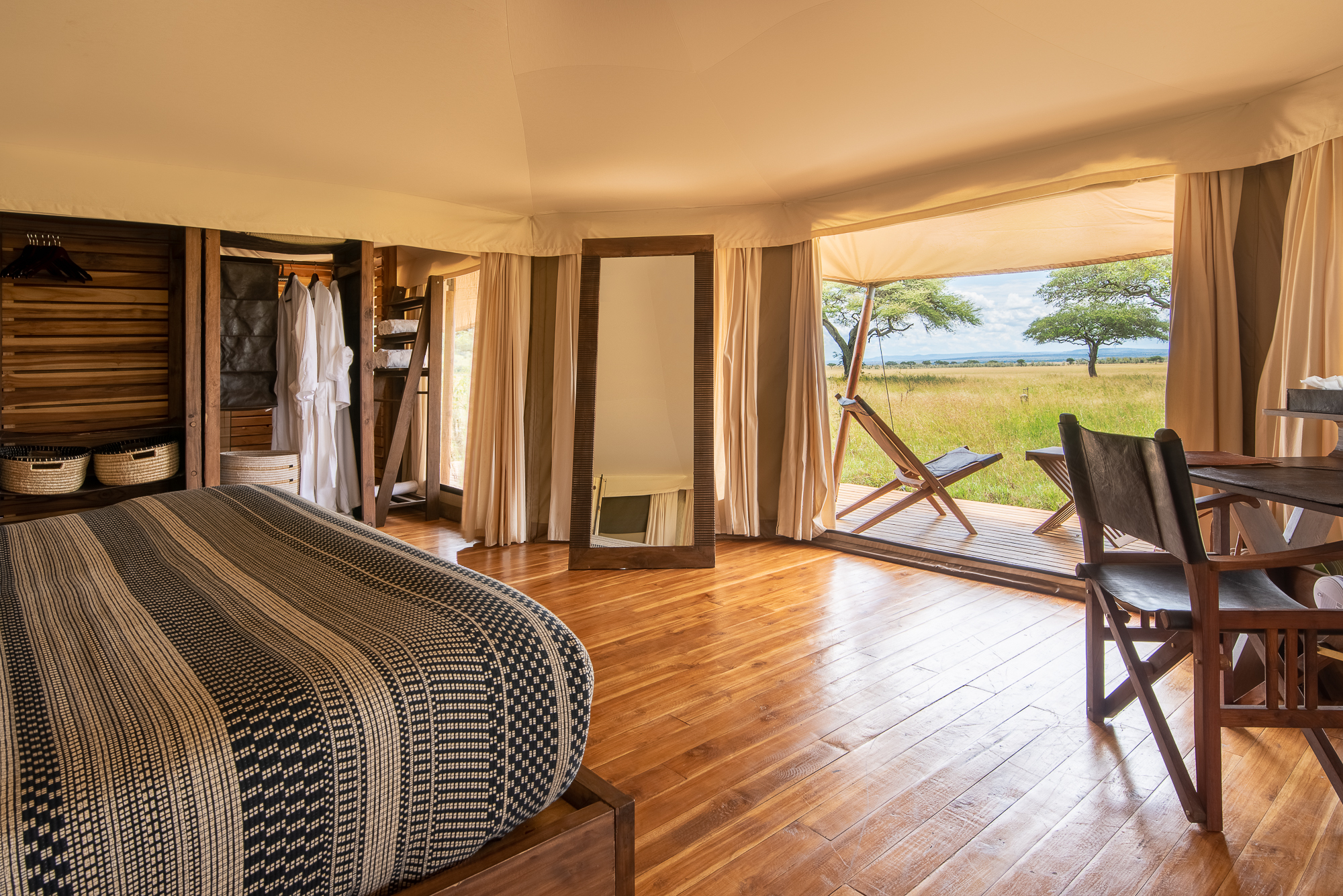
Image courtesy of Kantabile Afrika.
North Stars: Community Support, Diversity & Inclusion, Certifications
Kantabile Afrika comprises Aurari Camp, located near the Mara River in Northern Serengeti, and Cherero Camp, which sits alongside Musabi Plains in the mid-western Serengeti. Both offer a strategic position for observing wildebeest herds during the Great Migration. These luxurious, semi-permanent, solar-powered camps have almost no impact on their surroundings and are Tanzanian-operated with women at the helm – including head chef Zawia, who took on the role when she was just 25 years old. Kantabile Afrika is a member of the prestigious Regenerative Travel group, which recognizes accommodations with the highest commitment to positive social and environmental impact.
North Stars: Community Support, Diversity & Inclusion, Certifications
Nimali operates three sustainably-minded camps, two of which – Serengeti and Mara – are located in the Serengeti while the third, Tarangire, sits nearby within Tanzania’s Northern Circuit. Nimali is also a Regenerative Travel member, and acknowledges the increasing human encroachment on wildlife habitats. To help maintain balance in the bush, Nimali hires locally, supports the conservation efforts of Tanzania National Parks, and remains committed to minimizing impact on the environment without greenwashing.
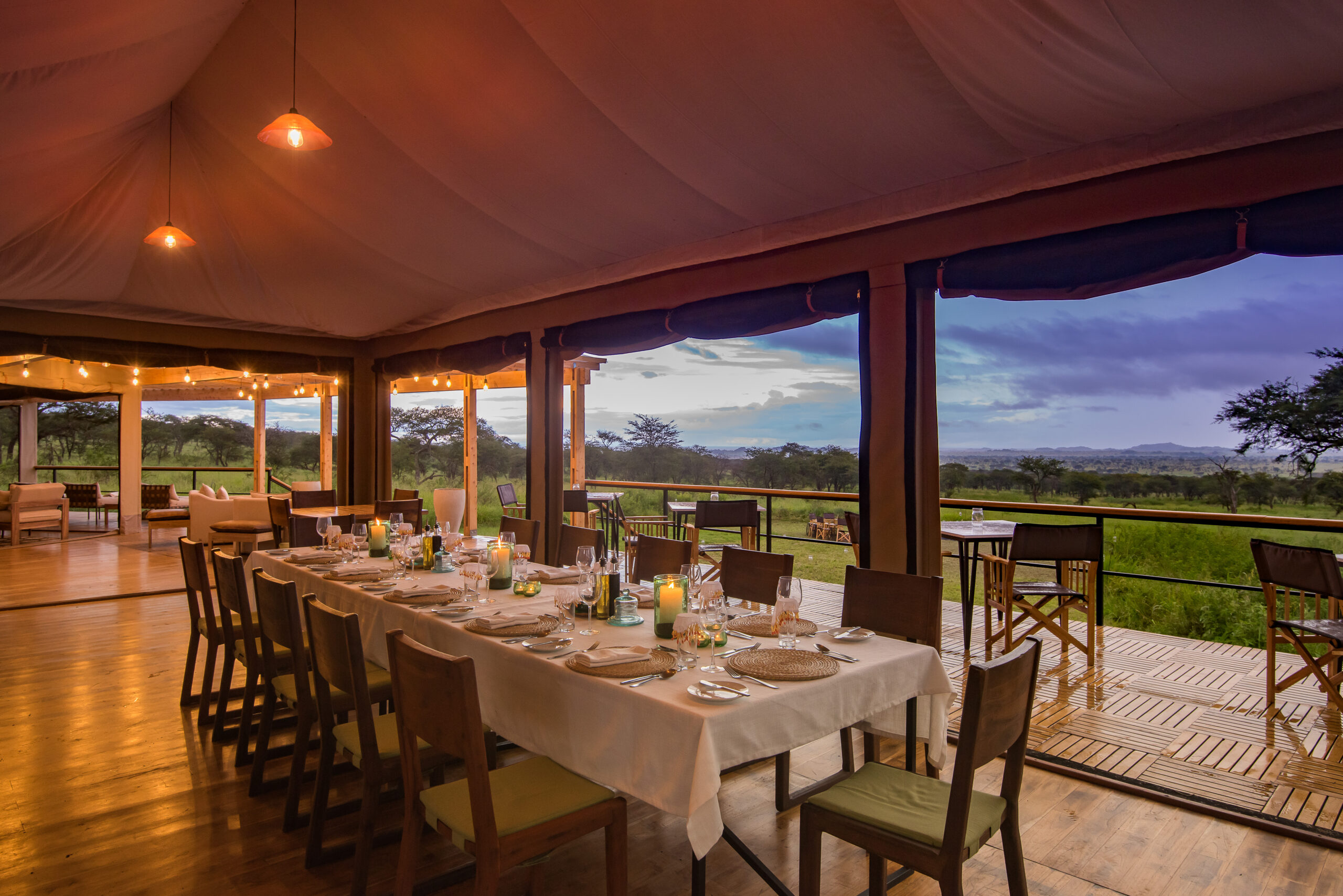
Image courtesy of Dunia Camp.
North Stars: Community Support, Gender Equality, Wildlife & Ecosystems
Asilia Africa’s Dunia Camp is the Serengeti’s only women-operated safari camp, standing out right away for its commitments to community empowerment. The semi-permanent, solar-powered camp is located near the Moru Kopjes, where elusive black rhino roam and wildebeest herds thunder past during the Great Migration. As with all Asilia Africa camps, guests at Dunia Camp help support a variety of projects uplifting both people and planet, including Twende Porini, which invites children from neighboring communities to Asilia camps to experience safari life, and the Serengeti Cheetah Project, the world’s longest-running scientific study on wild cheetah.
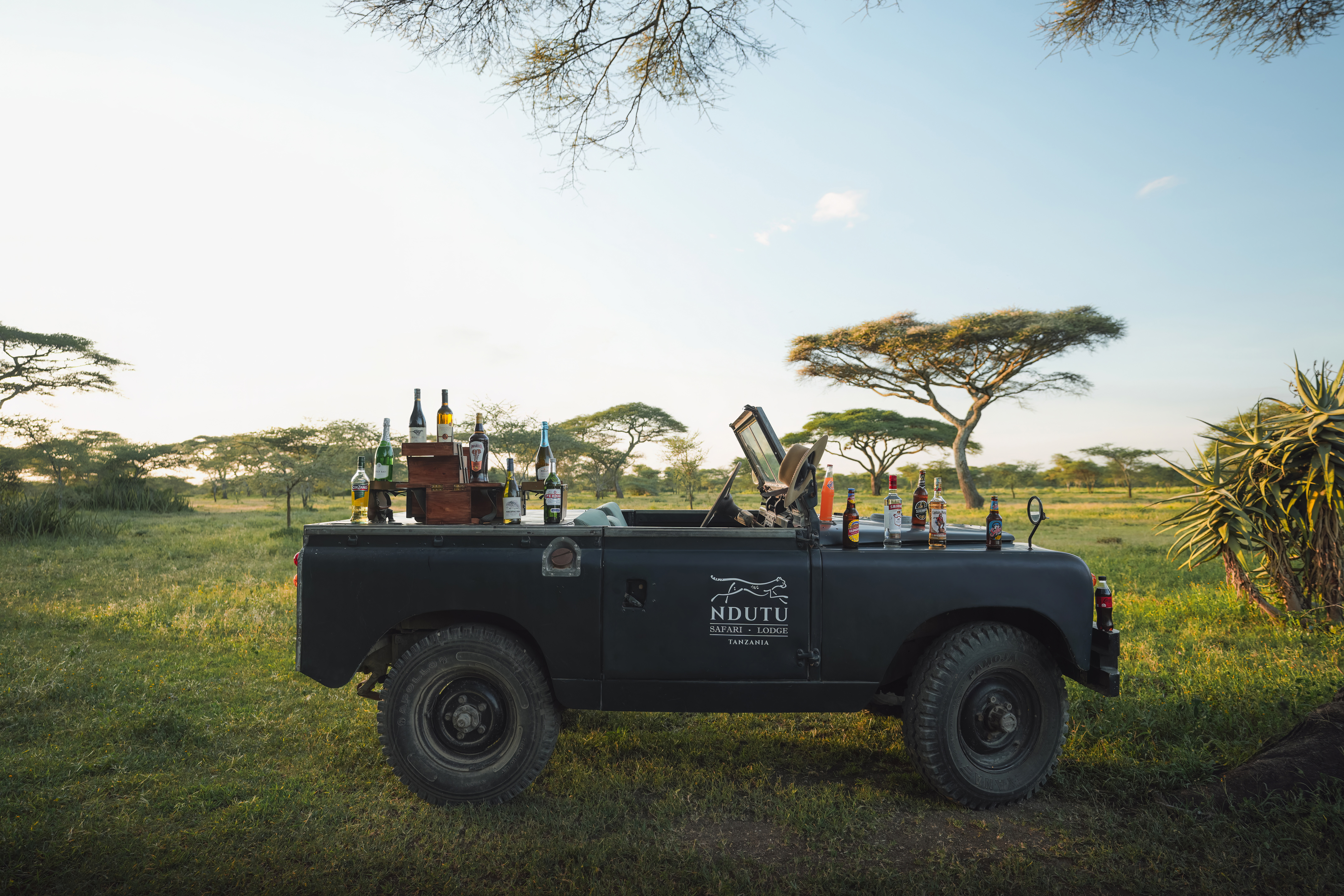
Image courtesy of Ndutu Safari Lodge.
North Stars: Community Support, Wildlife & Ecosystems, Heritage Value
Opened in 1967, Ndutu is Tanzania’s oldest safari lodge and a former home of conservationist Jane Goodall. The property has long been involved with scientific research and it remains a spectacular property for year-round wildlife viewing along the edge of the Southern Serengeti. Ndutu strives to do its part to protect this delicate ecosystem by encouraging guests to get involved with conservation programs like Kope Lion, which employs Maasai warriors to protect lion prides, and the aforementioned Serengeti Cheetah Project.
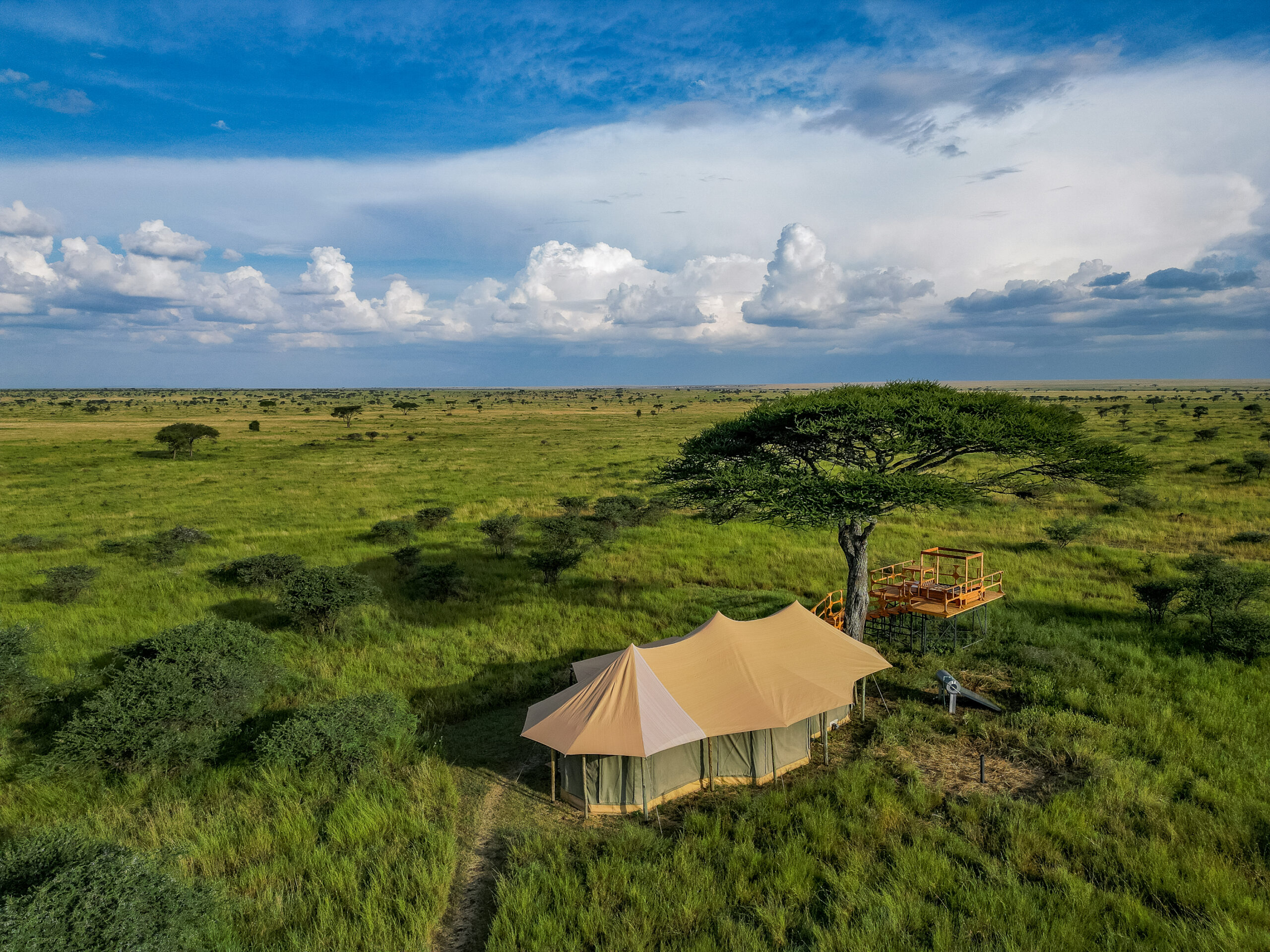
Image courtesy of Olmara Camp.
North Stars: Community Support, Wildlife & Ecosystems, Gender Equality
On the Eastern plains of the Serengeti, Entara’s Olmara Camp comprises eight tented, solar-powered suites. In this comparatively remote area of the park, Olmara is able to offer more than just the usual game drives to help guests engage with nature – it’s a great place to enjoy hot air balloon rides, walking safaris, fly camping, and stargazing. Entara camps are designed for minimal ecological impact, with genuine cultural experiences baked into each safari. The brand is especially committed to addressing the under-representation of women and Indigenous communities in the industry, and so has launched a mentorship program to provide on-the-ground training over the course of a one-year internship.

Summer Rylander is a freelance travel and science journalist covering positive-impact tourism and the conservation of our biodiverse planet. Follow Summer on IG @summeroutside.


